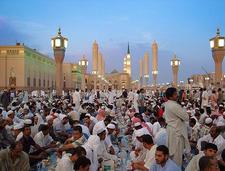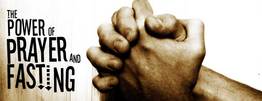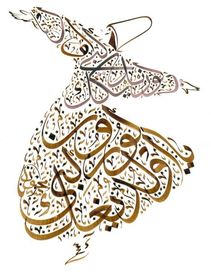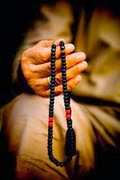
Over one of the classes I conducted last weekend, I was asked about a profound Hadith narrated in Sahih Bukhari when the Prophet s.a.w. said: “There are two pleasures for a fasting person: one when he breaks his fast, and the other when he meets his Lord.”
There are really two distinct dimensions covered in this hadith as a reward for fasting: first, is the pleasure we derived during Iftar after a full day of abstaining not only from food and drinks, but also of suppressing our nafs and manifesting noble actions. Second, is the ultimate pleasure of beholding the majesty of Allah s.w.t. and being in his Divine Presence in Jannah, insyaAllah.
Interestingly, the Prophet s.a.w. juxtaposed this worldly pleasure with the pleasure we hoped to derive in the Hereafter. This highlights several learning points:
1. Life’s Experiences
We sometimes wonder why we are subjected to joys and pains in this world. To me, every of these emotions are Allah’s ways of giving us a taste of the absolute emotions we will experience in the Hereafter. He gave us joy so that we are dedicated to do what is necessary to achieve our ultimate joy of being in Jannah. The reverse is also true: so that we will strive our best to avoid His Prohibitions because we are given a taste of pain through the loss of love or the death of a family member, for example.
2. Pleasure of Iftar
The first pleasure mentioned in this Hadith is significant because during Iftar, we are in fact celebrating our small victories for having successfully completed the fast, for restraining our anger earlier in the day, for being able to do some charity work, and so on. That is why when we sit with our family members for Iftar, we are embracing not only our success, but also the presence of those who are close and intimate to us. What it does is that it heightens our senses so that even a small amount of food seems sufficient and even plain water tastes sweet. The pleasure we derived is in the relief from a full day of hunger and thirst, the company we keep while experiencing this intimate moment, and the inevitable gratitude and humility this brings about.
3. Pleasure Of Meeting Allah
Obviously, this is the ultimate pleasure, victory and reward for any servants of The Almighty s.w.t. It is the penultimate aim of everyone to meet with Allah in His Paradise: it is an experience like no other, reminiscent of the joy felt when meeting someone who is most beloved. It is the meeting of the fasting person with his Lord, and the very pleasure in which he is experiencing can be caused by none other than that very same Lord which is before him. This will be such an overwhelming joy that all earthly pains and sufferings that he used to experience in the world will be immediately overshadowed by this meeting.
4. What Do I Do: The Process
Islam is not a difficult way of life, and I am so humbled by the Mercy and Love that Allah s.w.t. has for us. Just by taking a moment and savoring the experience we have during Iftar, and while at it – reflecting on the struggles we went through during the day of fasting, leading to a heightened sense of dependence on Allah, an enhanced gratitude and humility, followed by an increased rigor to do better the next day – is a mirror towards embracing the pleasure of meeting with Allah s.w.t. in the Hereafter. This is the ultimate reward for those who fast. And Allah s.w.t. gives us the opportunity to experience this joy every day! MasyaAllah.
I hope this short reminder will give you a heightened appreciation when you break your fast tomorrow onwards, insyaAllah, when you know that Allah wants you to experience something more than just eating, drinking or satiating your desires. And I also pray that during moments when you were about to give up on your fasting, just hold on a little bit longer so that you can experience this momentary earthly pleasure of Iftar, as a taste of ultimate pleasure that awaits you in Jannah.
Amin ya Rabbal ‘Alamin.
Love,
The Alchemist.






 RSS Feed
RSS Feed
